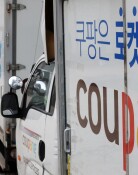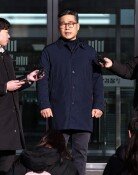The May 18 Military Operations Journals and Battery Reports Will Not Be Disclosed
The May 18 Military Operations Journals and Battery Reports Will Not Be Disclosed
Posted November. 12, 2004 23:07,
The Seoul Central District Public Prosecutors Office clarified on November 12 that concerning the judgment of the Supreme Court to disclose the investigation records of the December 12 Military Coup dEtat and the May 18 Gwangju Democratic Movement, it will disclose to the public all names of the dead and the victims without revealing the names of those under the position of generals of repressive armies during the May 18 Democratic Movement.
The prosecution decided to disclose about 70,000 pages (76.4 percent of the total 90,000 pages of opened case records), including 60,000 pages of investigation records of the May 18 Democratic Movement.
Military operations journals and detailed battle reports that groups of victims of the May 18 Democratic Movement demanded to make public were ruled out.
The prosecution has been sorting out case records to be opened to the public in accordance to the Supreme Courts decision on September 23 that it is illegal not to open case records comprehensively to the public.
Case records to be opened and disclosed consist of the names of people involved in the investigations including prosecutors related to the two cases, suspects, defendants, and witnesses. The names of the dead and victims during the May 18 Democratic Movement will be disclosed as well.
The names of those above the rank of colonel among the participants in the repressive operations of the May 18 Democratic Movement will also be disclosed. The repressive corps will be disclosed up to the battery unit level.
Concerning the December 12 Military Coup dEtat, the names of those who took orders directly from the command department of a rebel army and the command department will be disclosed, but those under indirect command will be sorted out as simple conspirators, and their names will not be disclosed.
In regards to case records not to be opened, the prosecution explained that the names of discharge commanders during the repressive operations for the May 18 Democratic Movement were not listed in the investigation records.
The prosecution decided to classify internal situations and the division of workload for the guarding of Cheong Wa Dae as well as the official residence of the prime minister during the December 12 Military Coup dEtat as harmful information to national interest and chose not to disclose them. Reference materials, which are attached to investigation records of the December 12 Military Coup dEtat and the May 18 Democratic Movement, were also excluded from the list.
Remarkable incident records such as the October 26 incident, the mock incident of Kim Dae-jungs conspiracy of a rebellion, the violation incident of the martial law decree, and the accused incident of former President Jeon Doo-hwans rebellion that caused a watershed in modern history are attached to the prosecutions investigation records as reference materials.
In argument against the omission of main points, Jeong Dong-nyun, chairman of the Verification Committee for the December 12 and May 18 Incident Records who requested opening of the records, said, We can see the number of discharge commanders and victims only when military operations journals and battery reports are disclosed. If not, we will make a protest.
Kim Soo-min, the assistant prosecutor general of the Seoul Central District Public Prosecutors Office, said, We decided disclosure to the public by reflecting opinions of organizations related to case records and had no intention to hide the facts.
Jin-Young Hwang buddy@donga.com







